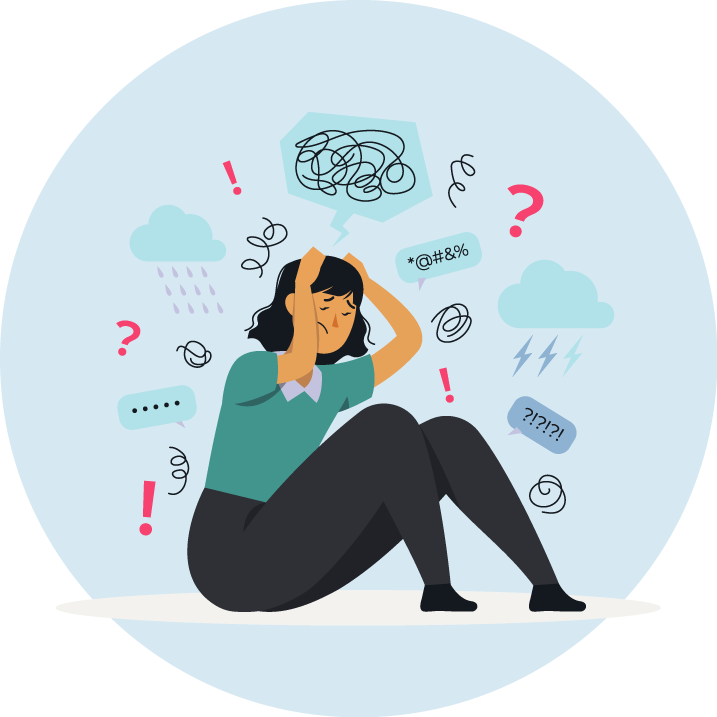Mental Health Strategies Used by HR Leaders in Top MNCs

Mental Health Strategies Used by HR Leaders in Top MNCs
September 24 2025 TalktoAngel 0 comments 15 Views
In today’s evolving corporate environment, mental health has emerged as a top priority. With increasing levels of work-related stress, anxiety, and burnout, leading multinational corporations (MNCs) are no longer treating mental health as a side issue—they’re embedding it into their core workplace strategies. At the forefront of this shift are HR leaders who are implementing proactive, inclusive, and data-driven approaches to support employee well-being.
This blog explores the key mental health strategies adopted by HR professionals in top MNCs and how they are shaping healthier, more resilient work cultures.
Why Mental Health Matters in the Workplace
Mental health challenges affect people across all industries and job levels. According to the World Health Organization (2022), depression and anxiety cost the global economy over $1 trillion annually in lost productivity. As employees struggle with burnout, isolation, and high performance expectations, companies are recognizing that mental wellness is not just a personal issue—it’s an organizational one.
Modern HR leaders understand that a mentally healthy workforce leads to better engagement, higher productivity, and improved employee retention.
Strategies HR Leaders Are Using to Promote Mental Health
1. Creating a Culture of Psychological Safety
At companies, psychological safety has become foundational. This involves building a culture where employees feel comfortable speaking openly about mental health without fear of stigma, judgment, or professional consequences.
- Managers are trained to have empathetic check-ins.
- Senior leaders often share their own stories of mental health struggles.
- Anonymous pulse surveys help HR track psychological climate regularly.
Impact: Fosters trust, openness, and early intervention.
2. Expanding Access to Professional Mental Health Support
Top MNCs are investing in professional resources that make support accessible and confidential. Partnerships with mental health platforms allow employees to connect with certified psychologists and counselors from the comfort of their homes.
- 24/7 Employee Assistance Programs (EAPs).
- Teletherapy in multiple languages and cultural contexts.
- AI-powered chatbots for emotional check-ins.
Example: Unilever and IBM offer mental health services globally, tailored to local needs and languages.
Impact: Reduces barriers to care and improves emotional resilience.
3. Training Managers to Recognize and Support Mental Health
Managers are often the first to observe behavioral changes in their teams. HR departments are empowering them to recognize early warning signs of distress and intervene appropriately.
Managers are taught how to have compassionate conversations and connect employees to support systems.
Impact: Prevents burnout and ensures quicker support for struggling employees.
4. Implementing Flexible Work Models
Flexibility is a powerful tool for reducing stress. Top MNCs are embracing hybrid models, work-from-anywhere policies, and flexible schedules to help employees maintain balance.
- “Wellness Hours” allow employees to take time out during the day.
- Unlimited mental health days or recharge leaves are offered by companies like TCS, Facebook, and Adobe.
Impact: Improves work-life integration and reduces chronic stress.
5. Integrating Mental Health with DEI Initiatives
Mental health does not exist in a vacuum—it is deeply connected to identity, culture, and lived experiences. HR leaders are weaving mental wellness into their Diversity, Equity, and Inclusion (DEI) strategies.
- Identity-based wellness groups (e.g., for LGBTQ+ employees, women, and racial minorities).
- Safe spaces and culturally relevant wellness programs.
- Mental health storytelling in internal events and campaigns.
Example: Salesforce offers “B-Well Together” sessions with global mental health advocates.
Impact: Creates safe, inclusive spaces for marginalized employees to access support.
6. Using Data to Guide Mental Health Interventions
Analytics tools are helping HR teams track employee well-being, identify trends, and tailor interventions.
- Regular well-being surveys and engagement tracking.
- Wearables and apps that monitor stress levels and sleep quality.
- Real-time dashboards to help leaders respond proactively.
Example: Amazon integrates data from wellness tools to manage workloads and prevent employee burnout.
Impact: Enables personalized support and evidence-based decision-making.
7. Promoting Preventive Mental Health Programs
- Prevention is more effective than crisis response. MNCs are focusing on proactive care through:
- Mindfulness and meditation programs.
- Emotional regulation and resilience workshops.
- Digital platforms offering self-assessments, coping tools, and habit-building.
Impact: Equips employees with tools to manage stress and avoid mental exhaustion.
Global Trends and Future Outlook
Across industries, a few key trends are reshaping how companies approach mental health:
- Tech-powered wellness: AI chatbots, mental health apps, and virtual counseling platforms.
- Leader-led change: CEOs and CHROs acting as wellness champions.
- Holistic integration: Mental health embedded into every HR process—from onboarding to exit interviews.
As remote and hybrid work continues, HR leaders must be agile in adapting strategies that promote mental health across cultures, roles, and geographies.
The Role of Platforms like TalktoAngel
Digital platforms are becoming essential partners in corporate wellness. They offer:
- Confidential therapy sessions.
- Personalized matching with therapists.
- Culturally sensitive, multilingual support.
- Scalable solutions for both individuals and organizations.
With tools like these, HR leaders can offer accessible, stigma-free mental health care to every employee, no matter where they work.
Conclusion
The workplace of the future is one where mental health is prioritized as much as physical health or performance. HR leaders in top MNCs are leading the way by implementing thoughtful, data-backed, and inclusive strategies that meet employees’ emotional needs.
From offering online therapy through platforms like TalktoAngel to normalizing mental health conversations in the boardroom, these organizations are setting new standards for psychological well-being.
Mental health isn’t just good ethics—it’s good business. And the best companies are proving that one mindful step at a time.
Contributed by: Dr (Prof.) R K Suri, Clinical Psychologist & Life Coach, & Ms Sangeeta Pal, Counselling Psychologist
References
- World Health Organization. (2022). Mental health at work: Policy brief. https://www.who.int/publications/i/item/9789240053052
- American Psychiatric Association. (2022). Mental health in the workplace. https://www.psychiatry.org
- Attridge, M. (2019). A global perspective on promoting workplace mental health and the role of employee assistance programs (EAPs). Journal of Workplace Behavioral Health, 34(4), 245–263. https://doi.org/10.1080/15555240.2019.1685122
- https://www.talktoangel.com/blog/therapy-and-counselling-for-executives-founders-entrepreneurs-living-abroad
- https://www.talktoangel.com/blog/personality-traits-of-successful-entrepreneurs
- https://www.talktoangel.com/blog/tips-for-overcoming-your-entrepreneurial-anxiety
- https://www.talktoangel.com/blog/mental-health-issues-among-businessmen
Leave a Comment:
Related Post
Categories
Related Quote

"The meeting of two personalities is like the contact of two chemical substances: if there is any reaction, both are transformed." - Carl Jung

"It is okay to have depression, it is okay to have anxiety and it is okay to have an adjustment disorder. We need to improve the conversation. We all have mental health in the same way we all have physical health." - Prince Harry

“You say you’re ‘depressed’ – all I see is resilience. You are allowed to feel messed up and inside out. It doesn’t mean you’re defective – it just means you’re human.” - David Mitchell, Cloud Atlas

“To keep the body in good health is a duty…otherwise we shall not be able to keep the mind strong and clear.” - Buddha

“Be like water making its way through cracks. Do not be assertive, but adjust to the object, and you shall find a way round or through it. If nothing within you stays rigid, outward things will disclose themselves.” - Bruce Lee
Best Therapists In India






























SHARE